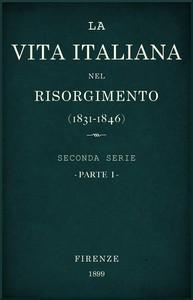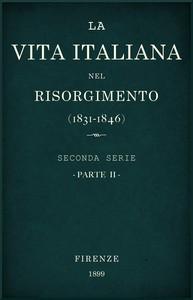Read this ebook for free! No credit card needed, absolutely nothing to pay.
Words: 11910 in 6 pages
This is an ebook sharing website. You can read the uploaded ebooks for free here. No credit cards needed, nothing to pay. If you want to own a digital copy of the ebook, or want to read offline with your favorite ebook-reader, then you can choose to buy and download the ebook.
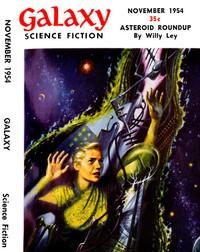

: The Music Master of Babylon by Pangborn Edgar Krigstein Illustrator - Science fiction; New York (N.Y.) Fiction; Apocalyptic fiction Science Fiction
tor had been opening a wall cabinet when he fell; the small key lay near his fingers. Plainly their discussion had not been concerned only with war, perhaps not at all with war--after all, there were other topics. The Ming vase would have had a part in it. Brian wished he could know what the old man had meant to choose from the cabinet. Sometimes, even now, he dreamed of conversations with that man, in which the Director told him the whole truth about that and other matters; but what was certainty in sleep was in the morning gone like childhood.
For himself, Brian had taken a little image of rock-hard clay, blackened, two-faced, male and female. Prehistoric, or at any rate wholly primitive, unsophisticated, meaningful like the blameless motion of an animal in sunlight, Brian had said: "With your permission, gentlemen." He had closed the cabinet and then, softly, the outer door.
"I'm old," Brian said to the red evening. "Old, a little foolish, talk aloud to myself. I'll have some Mozart before supper."
He transferred the fresh venison from the canoe to a small raft hitched inside the window. He had selected only choice pieces, as much as he could cook and eat in the few days before it spoiled, leaving the rest for the wolves or any other forest scavengers who might need it. There was a rope strung from the window to the marble steps that led to the next floor--home.
It had not been possible to save much from the submerged area, for its treasure was mostly heavy statuary. Through the still water, as he pulled the raft along the rope, the Moses of Michelangelo gazed up at him in tranquility. Other faces watched him. Most of them watched infinity. There were white hands that occasionally borrowed gentle motion from ripples made by the raft.
"I got a deer, Moses," said Brian Van Anda, smiling down in companionship, losing track of time. He carried his juicy burden up the stairway.
His living quarters had once been a cloakroom for Museum attendants. Four close walls gave it a sense of security. A ventilating shaft now served as a chimney for the wood stove Brian had salvaged from a mainland farmhouse. The door could be tightly locked; there were no windows. You do not want windows in a cave.
Outside was the Hall of Music, an entire floor of the Museum, containing an example of every musical instrument that was known or could be reconstructed in the 21st century. The library of scores and recordings lacked nothing--except electricity to play the recordings. A few might still be made to sound on a spring-wound phonograph, but Brian had not bothered with it for years; the springs were rusted.
He sometimes took out the orchestra and chamber music scores, to read at random. Once his mind had been able to furnish ensembles, orchestras, choirs of a sort, but lately the ability had weakened. He remembered a day, possibly a year ago, when his memory refused to give him the sound of oboe and clarinet in unison. He had wandered, peevish, distressed, unreasonably alarmed, among the racks and cases of woodwinds in the collection, knowing that even if the reeds were still good, he could not play them. He had never mastered any instrument except the piano.
"But even if I could play them," he muttered, now tolerantly amused, "I couldn't do it in unison, could I? Ah, the things that will bother a man!"
Brian recalled--it was probably that same day--opening a chest of double basses. There was an old three-stringer in the group, probably from the early 19th century, a trifle fatter than its modern companions. Brian touched its middle string in an idle caress, not intending to make it sound, but it had done so. When in use, it would have been tuned to D; time had slackened the heavy murmur to A or something near it. That had throbbed in the silent room with a sense of finality, a sound such as a programmatic composer--Tchaikovsky, say, or some other in the nadir of torment--might have used as a tonal symbol for the breaking of a heart. It stayed in the air a long time, other instruments whispering a dim response.
"All right, gentlemen," said Brian. "That was your A." He had closed the case, not laughing.
Free books android app tbrJar TBR JAR Read Free books online gutenberg
More posts by @FreeBooks

: Geschichte von England seit der Thronbesteigung Jakob's des Zweiten. Siebenter Band: enthaltend Kapitel 13 und 14. by Macaulay Thomas Babington Macaulay Baron - Great Britain History James II 1685-1688; Great Britain History William and Mary 1689-1702
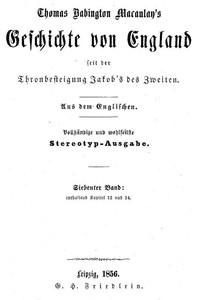

: Gampe's Erzgebirge mit Einschluss der böhmischen Bäder Teplitz Karlsbad Franzensbad und Marienbad des Voigtlandes und des Granulitgebietes an den unteren Mulden. Ein Reisehandbuch by Gampe Theodor - Erzgebirge (Czech Republic and Germany) Guidebooks
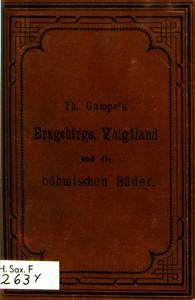

: La vita Italiana nel Risorgimento (1831-1846) parte 1 Seconda serie - Storia by Various - Italy History 1815-1870; Italian literature 19th century; Italy Civilization 19th century; Italy Intellectual life 19th century IT Storia
